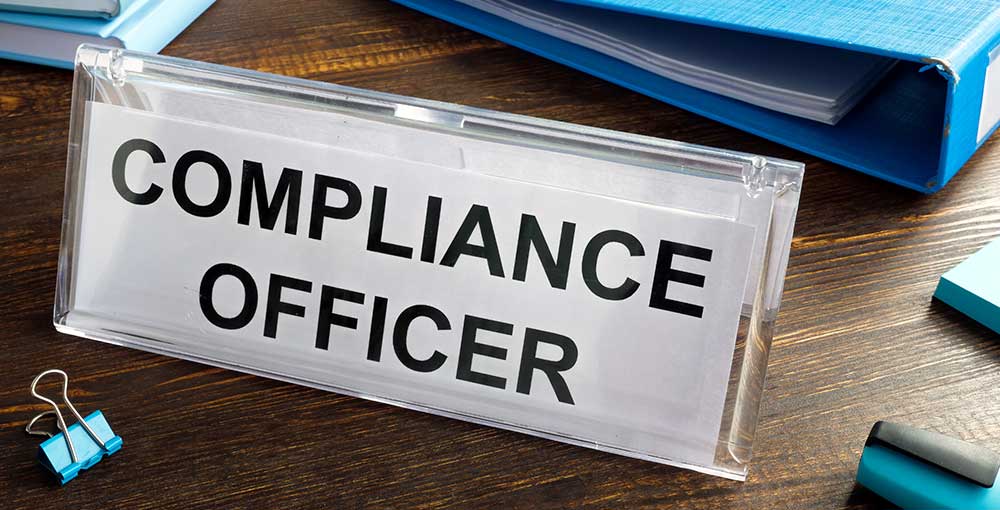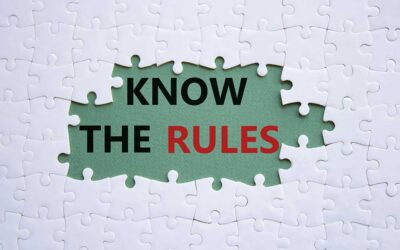The Different Layers of Compliance
Compliance is not a monolithic concept in the complex business and governance world. It is a multifaceted discipline that varies depending on the industry, the nature of the business, and the regulatory environment. To fully understand the role of a Compliance Officer, one must first grasp the different types of compliance they may encounter.
Regulatory compliance is perhaps the most common form of compliance that comes to mind. It deals with adhering to laws and regulations imposed by the government. For example, in the healthcare sector, Compliance Officers must ensure that the organization follows the Health Insurance Portability and Accountability Act (HIPAA). Failure to comply can result in severe penalties and even legal action.
Corporate compliance is internal and focuses on adhering to the company’s policies and procedures. Whether it’s employee conduct, data protection, or operational guidelines, corporate compliance ensures that the organization runs smoothly and ethically. The Compliance Officer’s job is to ensure employees are aware of these policies and follow them diligently.
Financial compliance takes on a whole new level of complexity in the financial sector. Compliance Officers must navigate a maze of laws and regulations like the Sarbanes-Oxley Act or the Dodd-Frank Wall Street Reform and Consumer Protection Act. The aim is to ensure transparency, prevent fraud, and maintain the integrity of financial markets.
With increasing awareness of environmental issues, Compliance Officers in specific industries must also ensure adherence to environmental laws and regulations. This could involve everything from waste management to emissions controls.
The role of a Compliance Officer is not limited to just one type of compliance. They must be versatile, well-informed, and capable of adapting to the specific compliance needs of their organization. This multi-layered approach to compliance makes the role both challenging and indispensable.
Compliance Officer Job Description
A Compliance Officer ensures that a company adheres to all external laws and internal policies. This includes a wide range of duties, from reviewing company policies, and preparing and filing compliance reports, to training staff about the latest regulatory issues. They are the guardians of corporate governance, ensuring that the company’s operations are conducted within the boundaries of the law.
In the financial sector, for instance, a Compliance Officer would be deeply involved in monitoring and reporting on the ethical conduct of financial transactions. They would scrutinize activities for signs of fraud or other risks that could harm the company or its stakeholders. In healthcare, the focus might shift towards patient data protection and healthcare laws.
The role is not static; it evolves with the changing landscape of laws and regulations. With the advent of technology, Compliance Officers are now tasked with ensuring digital compliance, including data protection and cybersecurity.
Qualifications often include a bachelor’s degree in law, business administration, or a related field. Certifications like the Certified Compliance and Ethics Professional (CCEP) or Certified Regulatory Compliance Manager (CRCM) are often considered an added advantage.
The Compliance Officer is the linchpin that holds the intricate web of corporate governance together. They are the unsung heroes who work behind the scenes to ensure that companies are profitable and responsible corporate citizens.
Compliance Officer Salaries
Regarding the financial aspects of being a Compliance Officer, the landscape is as varied as the industries they serve. According to the U.S. Bureau of Labor Statistics, the median annual wage for Compliance Officers was approximately $70,000 as of 2021. However, this figure can fluctuate significantly based on several factors such as industry, geographic location, and level of experience.
For instance, Compliance Officers in the financial sector often command higher salaries, with some earning upwards of $100,000 annually. On the other hand, those working in government or non-profit organizations may find the compensation to be comparatively lower, often ranging between $50,000 and $65,000.
Geography also plays a pivotal role. Major financial hubs like New York City or San Francisco offer higher salaries but also come with a higher cost of living. It’s essential to weigh these factors when considering job opportunities.
To provide a more nuanced understanding, let’s break down the salary ranges across different industries:
● Financial Services: $90,000 – $120,000
● Healthcare: $75,000 – $95,000
● Manufacturing: $70,000 – $90,000
● Government: $50,000 – $65,000
Note: These figures are approximate and can vary based on various factors.
Additional certifications like the Certified Compliance and Ethics Professional (CCEP) can provide a competitive edge for those looking to maximize their earning potential. Such certifications bolster one’s resume and signify a commitment to the profession, often leading to higher compensation.
How to Become A Compliance Officer
A career in compliance is complex and challenging, requiring a unique blend of skills, qualifications, and a deep understanding of the regulatory landscape. Here is a comprehensive guide to help you start on the right path.
Educational Foundation
The first step to becoming a compliance officer is to build a solid educational foundation. A bachelor’s degree in law, business administration, or finance is often considered the minimum requirement. Some roles, particularly in healthcare and finance, may require specialized degrees or certifications.
Certifications to Consider
While not always mandatory, certifications can significantly bolster your credibility. The Certified Compliance and Ethics Professional (CCEP) and Certified Regulatory Compliance Manager (CRCM) are among the most recognized. These certifications often require passing an exam and continuous education to maintain the credential.
Gaining Experience
Entry-level positions in compliance or related fields like internal audit or legal affairs can provide invaluable experience. Aim for roles that allow you to understand the intricacies of regulations and corporate governance. The more hands-on experience you gain, the better equipped you’ll be for a senior compliance role.
Skills Development
In addition to technical knowledge, compliance officers also need strong, soft skills such as communication, analytical thinking, and attention to detail. Consider workshops or online courses to hone these skills. Familiarity with compliance software and tools is also advantageous.
Networking and Mentorship
Building a professional network is invaluable in this field. Attend industry-specific conferences, webinars, and seminars. Seek mentorship from seasoned compliance professionals who can provide insights that textbooks and courses cannot.
Staying Updated
The world of compliance is ever-changing. Regularly review industry publications, updates in laws and regulations, and participate in webinars to stay current.
Specialization
As you gain experience, you may specialize in a particular sector like healthcare, finance, or manufacturing. Specialization often comes with its own set of required skills and certifications.
The journey to becoming a compliance officer is long and winding, requiring a blend of education, experience, and continuous learning. You can pave your way to a rewarding career in this critical field with the right approach and resources.
A Day in the Life of a Compliance Officer
The role of a Compliance Officer is often shrouded in mystery for those outside the field. However, these professionals’ day-to-day activities are essential to any organization’s smooth operation. Let us demystify this role by looking at a typical day.
Morning Routine: Regulatory Updates and Team Briefings
The day often starts with a review of any new regulatory updates that may have been released. This is crucial for staying ahead of the curve and ensuring that the organization remains compliant. Following this, a brief team meeting is usually held to discuss the day’s agenda and any pressing compliance issues.
Midday Tasks: Audits and Risk Assessments
Compliance Officers may find themselves deep in audits or risk assessments as the day progresses. These are comprehensive reviews of various departments to ensure they adhere to internal and external regulations. It is not just about ticking boxes; it is about understanding the nuances of each department’s operations and how they align with compliance standards.
Afternoon Engagements: Training Sessions and Stakeholder Meetings
The afternoon often involves training sessions to educate employees about new compliance measures. These are not mere PowerPoint presentations but interactive sessions designed to engage employees in the importance of compliance. Meetings with stakeholders or regulatory bodies may also be scheduled to discuss compliance statuses or upcoming audits.
Evening Wrap-Up: Documentation and Reporting
Before calling it a day, meticulous documentation is carried out. This includes updating compliance logs, preparing reports, and setting the agenda for the next day. The day concludes with a sense of accomplishment, knowing that the organization is one step closer to being fully compliant.
Ongoing: Crisis Management
While the above outlines a typical day, Compliance Officers must be prepared for the unexpected. Whether it’s an unexpected audit from a regulatory body or an internal compliance breach, crisis management is an ongoing aspect of this role.
The role of a Compliance Officer is multifaceted, involving a blend of regulatory knowledge, interpersonal skills, and meticulous attention to detail. Each day presents challenges and opportunities, making it a dynamic and rewarding career path.
What is a Chief Compliance Officer?
The Chief Compliance Officer (CCO) is a sentinel at the helm of an organization. This role is not just an elevated version of a Compliance Officer; it is a position that carries significant weight and responsibility. The CCO is often an executive team member, reporting directly to the CEO or the board of directors.
The primary responsibility of a Chief Compliance Officer is to ensure that an organization is conducting its business in full compliance with all national and international laws and regulations that pertain to its particular industry. This includes ensuring that company policies and activities are being executed within the bounds of the law. The role also extends to overseeing and managing compliance issues within the organization, making it critical for a corporation’s governance and ethical well-being.
Regarding qualifications, a Chief Compliance Officer usually holds an advanced degree in law, business, or a related field. They often have extensive experience in risk management, legal compliance, and corporate governance. Certifications like the Certified Compliance & Ethics Professional (CCEP) can add value to a CCO’s credentials.
The role of a CCO is dynamic and ever-evolving, especially in sectors like finance and healthcare, where regulatory changes are frequent. They must stay abreast of changes in legislation that affect the organization and ensure that the company adapts its operations accordingly. This often involves liaising with various departments, from legal to human resources, to implement compliance programs across the board.
COOs play a key role in ensuring that the organization complies with all applicable laws and regulations, and they help to protect the organization from potential legal and financial risks.




